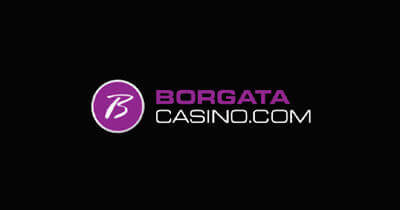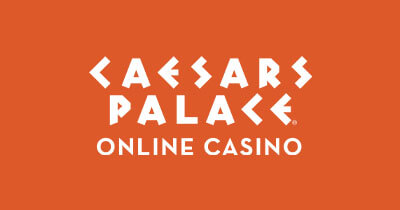One of players’ most often asked questions about blackjack strategy is “how should I bet?”
You’ve got several options, and I’ll discuss them in this article and offer my recommendation.
Which Online Blackjack Strategy Should You Choose?
There are options for how much money you should bet and many theories about when you should change it. There are two primary schools of thought:
- Never change your bet amount
- Change your bet amount according to some system
Neither of these is a perfect blackjack strategy, but some betting systems are less perfect than others. Read below to find out why.
The best strategy to try when you’re new to a casino: Flat Bet
This means betting the same amount all the time. Most players don’t like to bet this way because they figure if the dealer wins more hands than them, they’ll never win any money.
Also, players feel it’s boring betting this way. They prefer the thrill of sometimes betting more in the hopes that they will win the hand and make a nice profit when they do so.
Here are the facts on the flat betting blackjack strategy: If you bet, say $5 on every hand in a classic multiple-deck game, the house will have an edge of 0.5% against the skilled primary strategy blackjack player.
That means you will lose, on average, 0.5% of every wager you make.
So if you bet $10 on every hand and average 80 hands per hour, you will have made a total of $800 worth of bets. The casino expects to earn 0.5% of the $800 or $4.00.
Of course, the more likely result is that you’ll win or lose much more than $4 after an hour of play. But on average, you can expect overtime to lose at $4 per hour.
Committing to a flat bet does have its advantages: it keeps you from chasing losses with big, dumb bets. And it checks your ego. These are two significant benefits as you’re starting with blackjack.
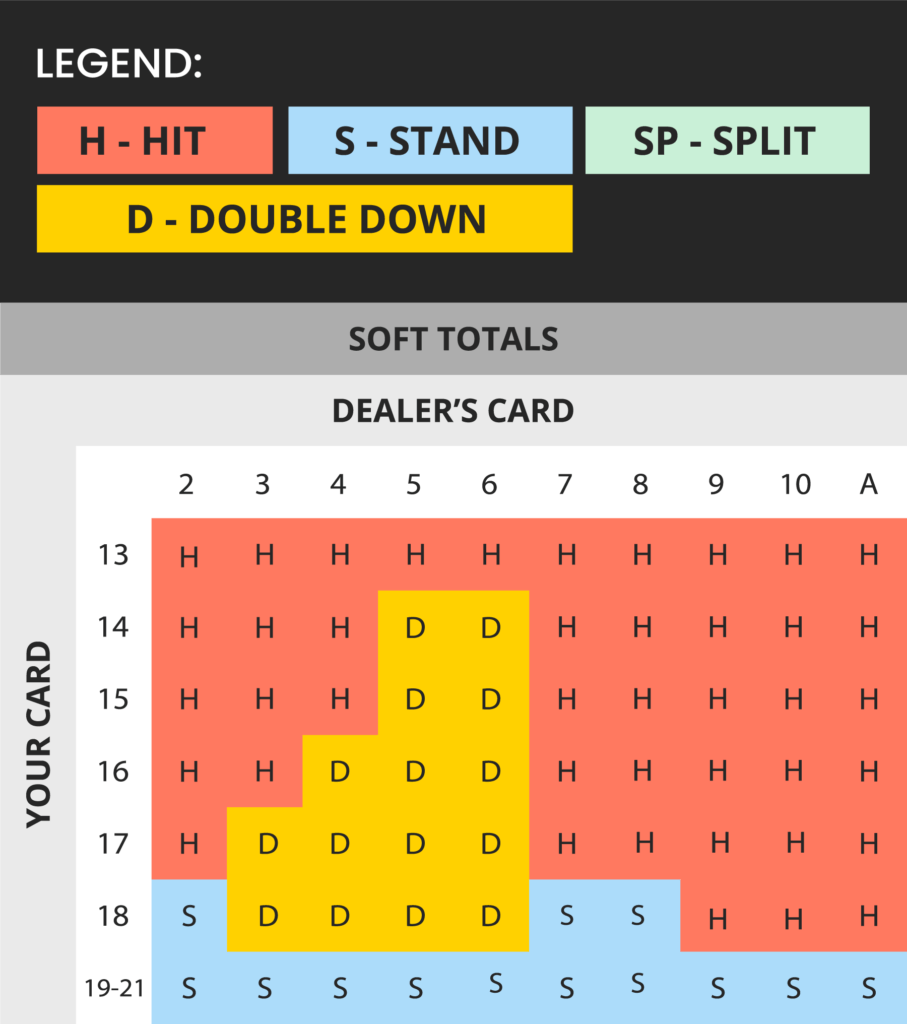
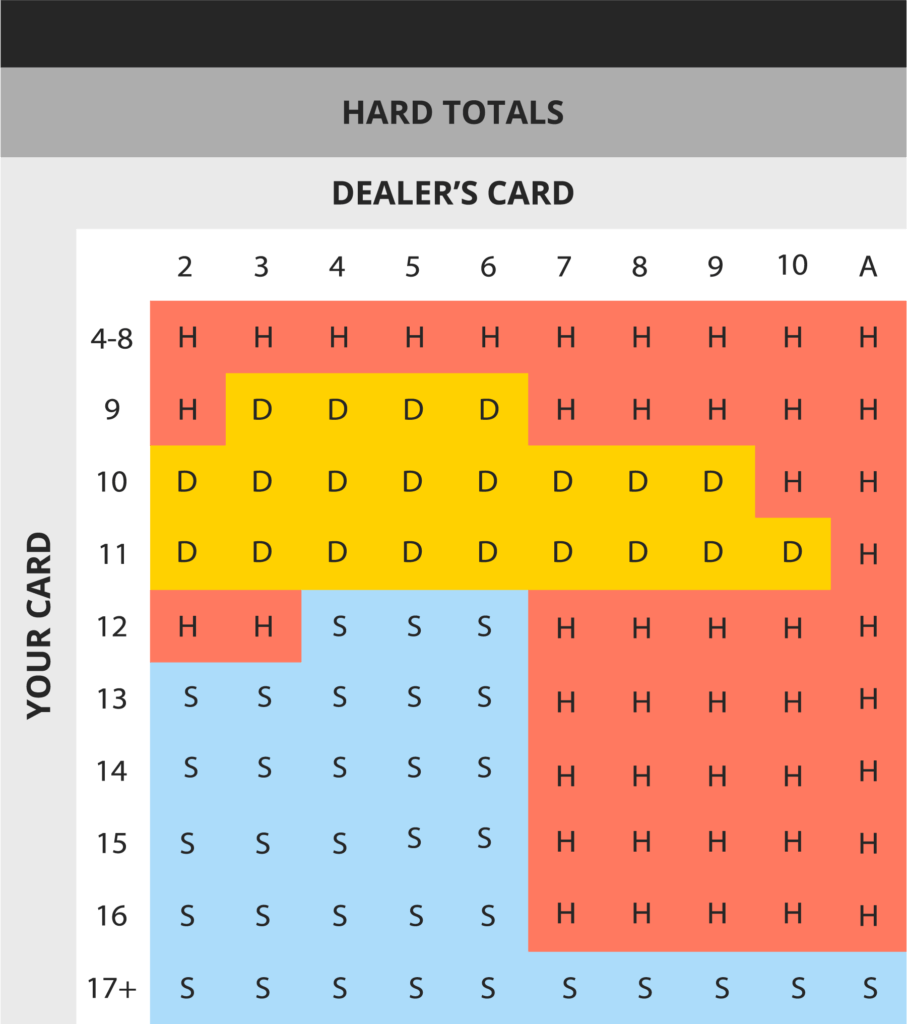
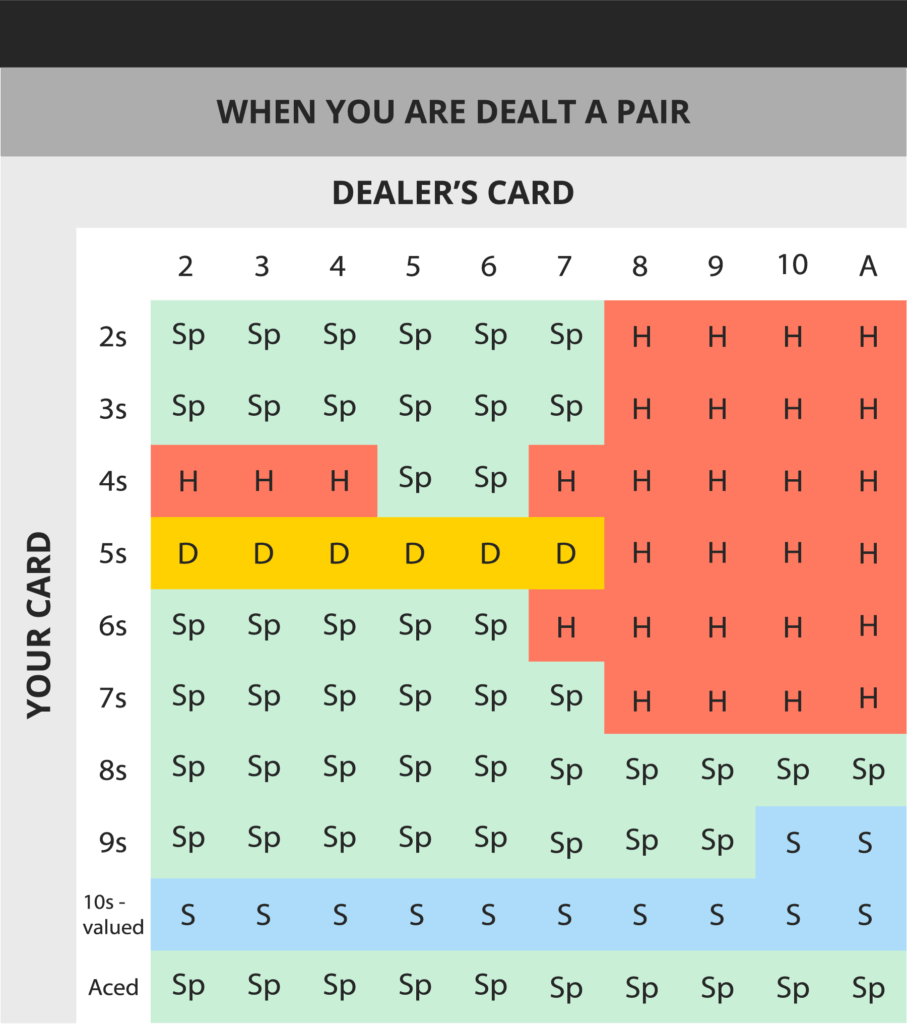

- 100% Match Bonus
- Valid for all games
- Highest RTP% blackjack!
- Available in New Jersey
Play Single Deck Blackjack at Caesars Palace Online Casino
Caesars Palace Online Casino offers Single Deck blackjack with an amazingly high RTP of 99.87%!
Caesars Palace is known as a major Atlantic City casino, and its online casino also has a great selection of table games and slots.
Caesars Palace is 100% legal for play throughout New Jersey. They also have an impressive 100% match bonus for new players.
Find the Largest Variety of Blackjack Games at BetMGM!
At BetMGM, you’ll find the best selection of blackjack games available, including Single Deck, Premium Blackjack Pro, Live Dealer, and more.
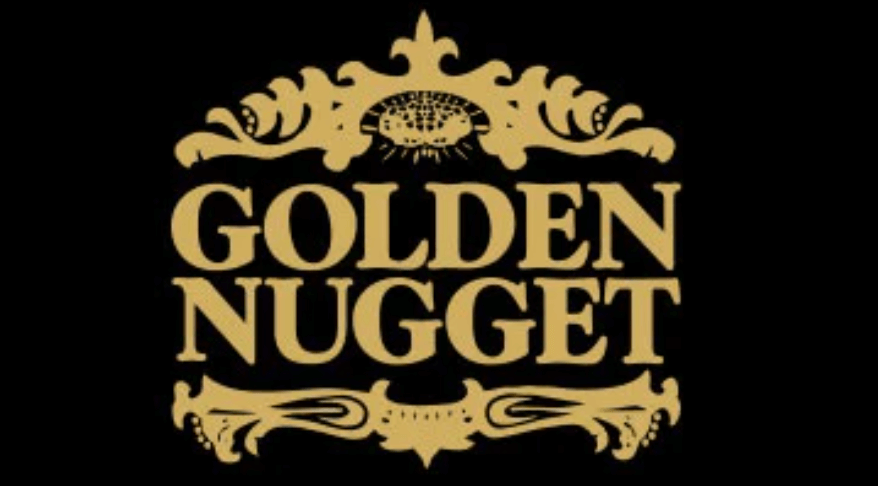
- $1,000 First Deposit Bonus
- Very low wagering requirements
- Available in New Jersey
Play 24 Hour Live Dealer Blackjack at Golden Nugget
You’ll find the best 24 hour live dealer blackjack tables at Golden Nugget, including Unlimited Live Blackjack, and Live High Roller Blackjack.
Advanced Blackjack Strategies: Progressive Betting
This is where things get interesting. The Progressive betting blackjack strategy is when players vary their bets in some way from one hand to the next rather than always betting the same amount on every hand.
There are all different types of betting progressions but they all have one common denominator. You either decrease or increase your next bet depending upon whether the hand you just played won or lose.
Win progressions encourage you to increase your bet size after a winning hand. For example, you make a minimum bet of $10 and if you win, you raise your next stakes on the hand to $20.
There are all different kinds of win progressions. The most common is a 1-2-3-5 progression. This means you increase your bet by the above multiples after each winning hand but as soon as you experience a loss, you start the progression over with a 1 unit bet.
Proponents of win progressions will tell you that you’ll win more money if you win 5 consecutive hands compared to the amount you lose if you lose 5 consecutive hands.
Of course, what they don’t tell you is that you never know when that 5 consecutive winning hand streak will occur.
There are also betting progressions in which you increase your bet following a loss. These Martingale type betting progressions are dangerous and you should never consider using them.
There are also hybrid betting progressions, which have you increase your bets following a win, but after two or three success wins you lock up some profit and gradually regress your bets. The creativity of progressive bettors is never-ending.
Henry Tamburin’s Expert Advice:
“First of all, the blackjack strategy for betting progressions does not change the 0.5% house edge one iota. There has never been a correlation between the hand just won (or lost) and your chance of winning the next hand.
In other words, using the criteria of the result of one hand (W/L) to base how you bet on the next hand has no scientific validity. So betting progressions, in the long run, don’t work in the sense that they won’t improve your long-term chances of winning.“
Over an hour he will average $20 times 80 hands or $1600 worth of bets. The casino’s expected win is 0.5% of $1600 or $8.
In other words, a $10 progressive bettor stands to lose twice as much per hour as a $10 flat bettor.
So what betting system works?
That, my friends, is card counting.
What is Blackjack Card Counting? Does it actually work?
With card counting, you know when you have the edge based on the change in the composition of the decks and therefore you’ll know when it’s the right time to bet more.
So unlike betting progressions that are based on whether you win or lose the previous hands, card counting is based on the mix of cards that were played on previous hands.
If more small value cards were played in previous rounds, there are more big value cards left in the unplayed cards, and the edge shifts from dealer to the player. This would be the best time to bet more.
But I’m a realist. Not a whole lot of average blackjack players have the time or mental concentration during play that is required to master one of the popular point count card counting systems.
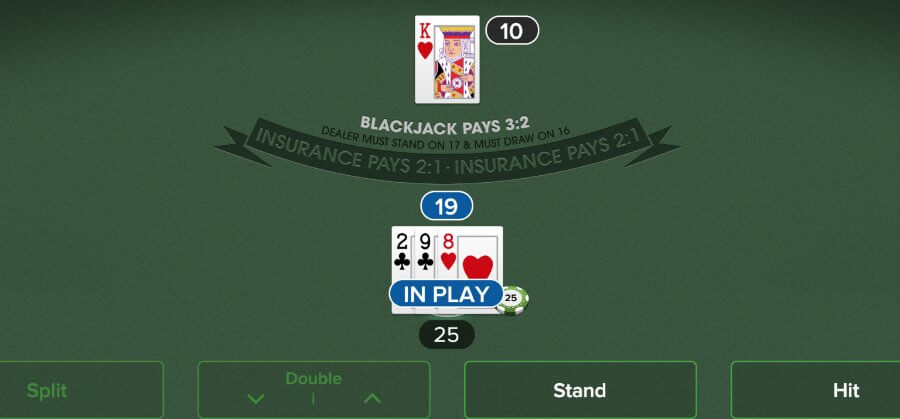
Learn all about card counting on our Blackjack Card Counting page!
And if you’re in New Jersey or Pennsylvania, you can play the blackjack online for the absolute lowest house edge, winning options, and best payouts.
Never Make this Bet at the Blackjack Table!
Watch “Why You Should Never Make the Blackjack Insurance Bet with Blackjack Expert Henry Tamburin” (March 2016).
In this video blackjack expert Henry Tamburin explains why a basic strategy blackjack player should never make an insurance bet.
He gives details on three different situations that a player may encounter and why he considers blackjack insurance to always be a sucker bet.
Tips for Onlne Blackjack
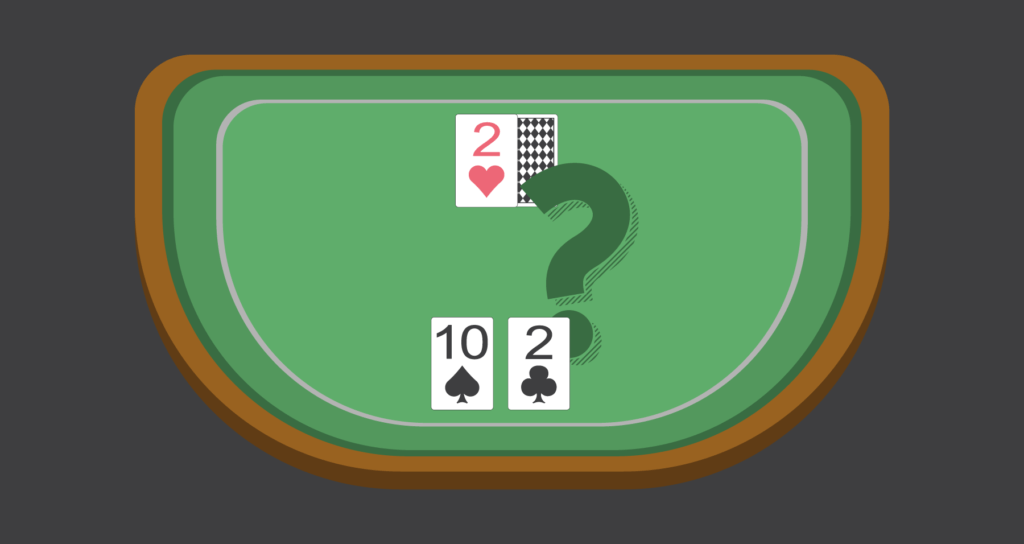
12 Against Dealer’s 2 in Blackjack: Why Hit?
One of the more frustrating hands in blackjack is being dealt a 12 when the dealer shows a 2 upcard. You hate to hit your 12 because you are afraid the dealer is going to give you a picture card and you’ll bust.
There’s a lot of misconception on what’s the correct way to play this hand and I aim to sort it all out so it will no longer be a “dilemma” for you.
First off, let’s look at some facts about this hand.
- Many players don’t hit 12 because they believe the dealer has a ten in the hole and, therefore, they won’t risk busting when the dealer has a weak upcard. However, when you hold a 12, only four cards will bust you … any 10, Jack, Queen, and King, meaning you have a 65% chance of surviving a hit. Five cards … any 5, 6, 7, 8, or 9 … will give you a 17 through 21 hand.
- With a 2 upcard, the dealer has a 35% chance of busting and a 65% chance of making a 17 though 21.
- If you stand, you’ll win 35% of the time and lose 65% of the time.
- If you hit, you’ll win 37% of the time and lose 63% of the time.
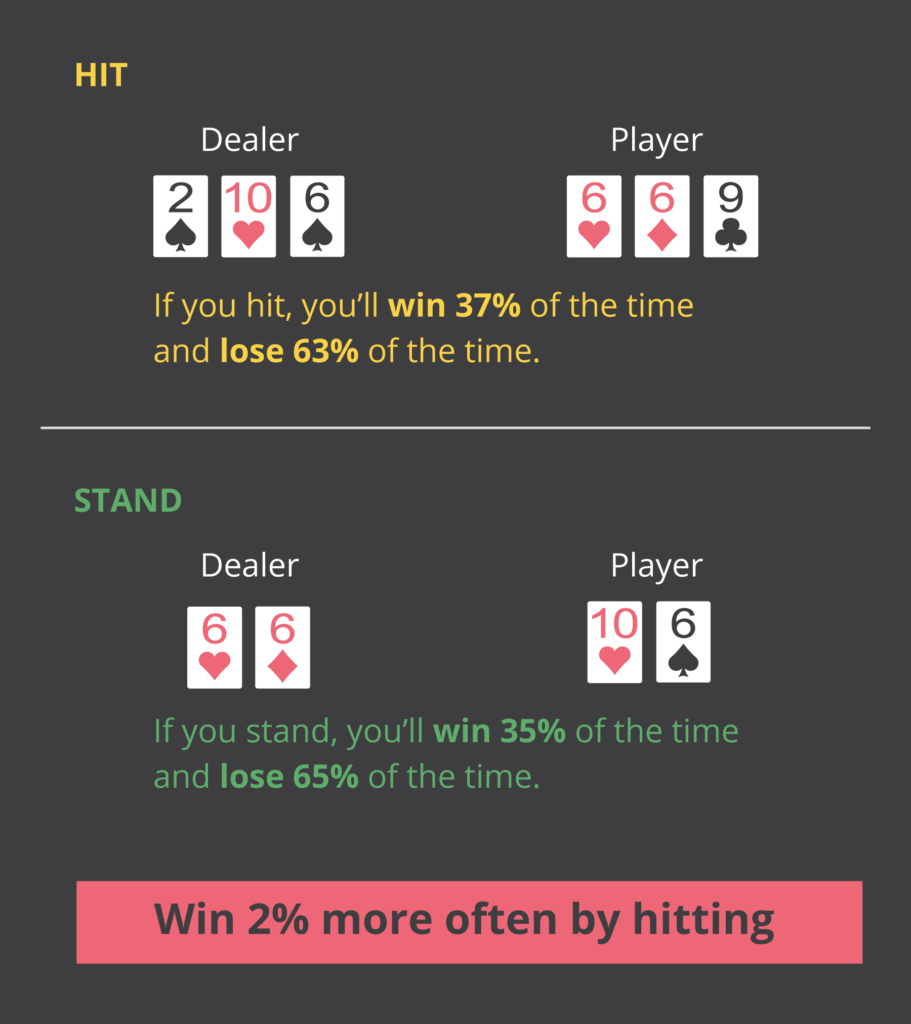
Split those 6s and Aces!
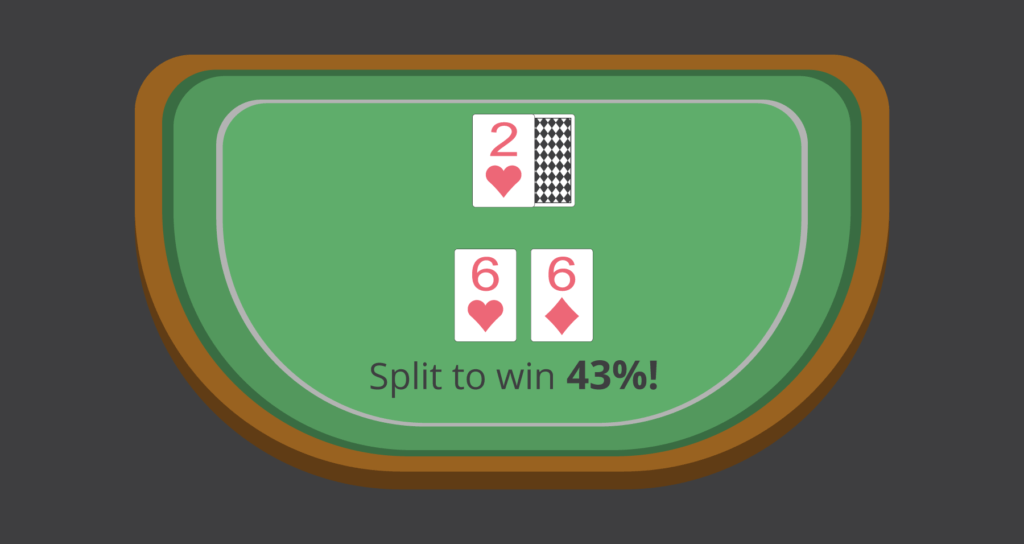
What if your 12 consists of a pair of 6s? Now you’ve got another option and that’s to split the 6s and play two hands against the dealer’s 2 upcard. It turns out that when you split and play a 6 against a dealer 2, you will win roughly 43% of the time.
(But there is one exception: if you’re playing a four-, six-, or eight-deck game where you can’t double down after pair splitting, you should hit 6’s against a 2).
You could also be dealt a soft 12, which happens to be Ace-Ace. This hand should be a no brainer. You should always split a pair of aces regardless of what the dealer’s upcard is.
High-value card count
There are advantages to card counting with a limited deck. When the remaining cards contain an abundance of high-value vs. small-value cards (thus increasing your chance of busting if you hit 12), it’s wise to stand.
In fact, card counters will sometimes stand on 12 whenever their count gets moderately positive (indicating more high cards than small cards remain in the unplayed deck of cards).
Beginner Mistakes to Avoid
Avoid 6-To-5 Blackjack Games!
There’s an awful blackjack game that is spreading like wildfire in casinos throughout the US. The game is played with a single deck of cards (that’s the come-on) and when a player gets a blackjack, he is paid at 6-to-5 instead of the traditional 3-to-2.
That change in blackjack payoff increases the house edge by about 700% (Yikes!). Let me show you in dollars and cents what a 6-to-5 blackjack payoff costs you.
If you bet $10 and get a blackjack in a traditional game (3-to-2 payoff on blackjack) you will win $15. In a 6-to-5 game that same $10 bet will net you only $12. So you’re out $3 for every blackjack hand that you get. On average you’ll get four blackjacks per hour so for every hour you play a 6-to-5 single deck game, it costs you $12.
Find the Best Payouts and Single Deck Payouts Online!
Do you want to hand over to the casino $12 per hour for the privilege of playing blackjack? Of course you wouldn’t but that is exactly what you do when you play the 6-to-5 single deck game at a $10 minimum bet.
It’s painfully obvious that this game is being marketed to tourists and amateur players that know very little about blackjack. So be forewarned and do not play any blackjack game where player blackjacks pay 6-to-5 (or worse: even money).
You can find out even more details about 6-to-5 blackjack games in the video below with Blackjack expert, Henry Tamburin.
The Worst Hand in Blackjack: Player’s 16!
No other hand makes blackjack players feel queasy than the dreaded 16. Players hate to hit the hand because they are afraid to bust.
So many chicken out and stand no matter what the dealer shows. Others opt for the surrender option if it’s available figuring losing half a bet is better than losing it all.
No question that 16 is a lousy blackjack hand. Unfortunately, it’s one of the most frequent hands you are going to be dealt in blackjack.
But, by following the playing strategy below, you will be optimizing your chances of winning more, and losing less, in the long run. It’s the smart way to play blackjack.
Hard 16
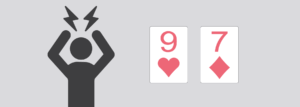
First, let’s focus on a hard 16. (That’s a hand that does not contain an Ace or if it does the Ace counts as one.) Some examples of a hard 16 would be 10-6 or 5-7-4 or 7-8-Ace.
The correct basic blackjack strategy for hard 16 is to stand when the dealer shows a small card (2 through 6) and hit when the dealer shows a high card (7, 8, 9, 10, or Ace). Following this playing strategy will not guarantee that you will win every time but that you are more likely to lose less in the long run. Let me explain:
Suppose you are dealt a 10-6 and the dealer shows a 7 upcard. 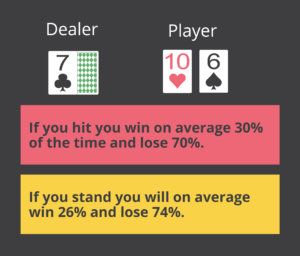
If you hit you win on average 30% of the time and lose 70%.
If you stand you will on average win 26% and lose 74%.
Note that you improve your chances of winning the hand by 4% if you hit rather than stand. But the dealer is still an overwhelming favorite to beat you because he will win 70% of the hands to your 30%. But is it better to win 26% of the time by standing or 30% of the time by hitting?
You should hit because it will increase your chance of winning by 4%, not much, but every percentage will help you in the long run when you play blackjack.
“Losing less on hands where you are the underdog is just as important as winning more when you are the favorite.“
Hard 16 from low cards

But what if your 16 consists of three or more cards like 5-7-4?
Normally the basic blackjack strategy ignores the composition of the hand.
However, if you have a hard 16 hand consisting of three or more cards, then you should stand when the dealer has a 10 showing. The reason is that you have consumed a few of the small cards that you need if you were to draw. This tips the odds in favor of standing.
The Soft 17 rule
To be clear, a Soft 17 is simply another name for a blackjack hand totaling 17, with the ace counting as either 1 or 11. You can’t go bust with a Soft hand if you add a single card to it. By contrast, a “hard hand” is any hand that does not contain an Ace, or that does contain an Ace but can go “bust” if another card is added.
When to Surrender a hard 16
Surrendering a hard 16 when the dealer shows a 9, 10, or Ace will save you more money in the long run than hitting.
If you happen to be dealt a soft 16 (like Ace-5), you should never surrender and you should never stand. Your first option is to double but only if the dealer shows a weak 4, 5, or 6 upcard. If not, then hit.
Pair of 8s

The correct basic strategy play is to always split the 8’s no matter what the dealer shows. Even though you will lose money on both 8’s when you split, the combined loss, in the long run, will be less than the amount you will lose by playing the one hand as a 16.
Splitting 8’s against a dealer 10, by the way, is also a slightly better play then surrendering.
Now that you know the scoop on betting at blackjack, I wish you many aces and faces the next time you play!
Blackjack Shuffle Tracking
Want to give yourself an edge in a live situation. While casinos use decks, if you’re playing with friends or other scenarios, you can actually track the deck visually


